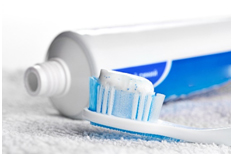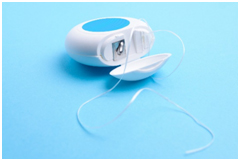We all know that it is important to follow a good oral hygiene routine to keep our teeth and gums healthy, but it is very easy to slip into bad habits or forget some important parts.
In this month’s we give answer all your top oral health questions.
What sort of toothbrush is best?
The key factor to check is that the toothbrush you use has soft bristles as this reduces the risk of toothbrush abrasion. It should also ideally have a small head to allow you to clean all the hard to reach areas.
Which is better an electric toothbrush or a manual one?
It does not matter whether you use a manual or electric toothbrush the key is to  follow good toothbrushing techniques, by brushing twice a day for at least two minutes using a fluoride toothpaste.
follow good toothbrushing techniques, by brushing twice a day for at least two minutes using a fluoride toothpaste.
How do I care for my toothbrush?
Always rinse your toothbrush with water after brushing. Store your toothbrush in an upright position and allow it to air-dry until using it again. Do not routinely cover your toothbrush or store it in a closed container, as this can encourage the growth of bacteria, mould, and yeast.
How often should I change my toothbrush?
It is important that you change your toothbrush every 3 months or sooner if the bristles become worn to ensure that you are brushing effectively.
Why do I need to use a toothpaste with fluoride?
 Fluoride is a naturally occurring mineral that is found throughout the Earth’s crust and widely distributed in nature. Fluoride helps prevent tooth decay by slowing the breakdown of enamel and increasing the rate of the remineralization process, essentially it helps to strengthen your teeth and protect them from decay.
Fluoride is a naturally occurring mineral that is found throughout the Earth’s crust and widely distributed in nature. Fluoride helps prevent tooth decay by slowing the breakdown of enamel and increasing the rate of the remineralization process, essentially it helps to strengthen your teeth and protect them from decay.
Why do I need to floss?
Brushing alone only cleans around 60% of the tooth surface. Flossing or using other interdental cleaning aids is needed to remove plaque and bacteria from areas between teeth, where brushing alone misses.
Why should I limit my intake of sugary and acidic foods and drinks?
The sugars and acids in foods can cause tooth decay and acid erosion, weakening your teeth. Wherever possible try to limit these things to mealtimes and avoid grazing on them throughout the day as this leaves your mouth under constant attack.
Why should I wait to brush after eating?
Brushing your teeth immediately after eating can have a negative effect on your tooth enamel. Eating softens the tooth enamel and brushing too soon after eating may damage the enamel while it is in its weakened state. If you have consumed something acidic, you should avoid brushing your teeth for 60 minutes.
Foods that contain citric acid, like oranges, grapefruits, and lemons, can soften tooth enamel for a time, and brushing too soon after eating them may damage the enamel while it is in its weakened state.
enamel for a time, and brushing too soon after eating them may damage the enamel while it is in its weakened state.
With all these tips your teeth will be looking great, but it is also important that you attend for appointments with your dentist every 6 months or sooner if you notice any issues. Not been for a while? Not got your next appointment booked? Call Ringmer Dental on 01273 813898 to book your routine dental appointment today.


